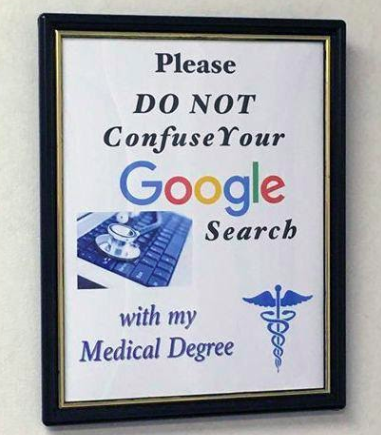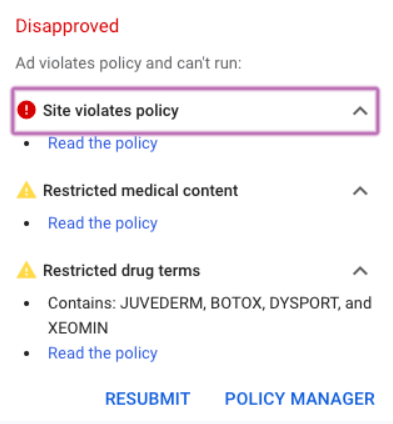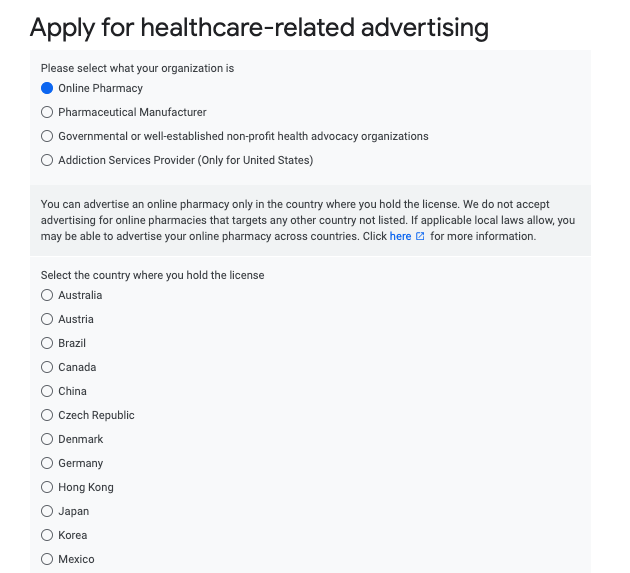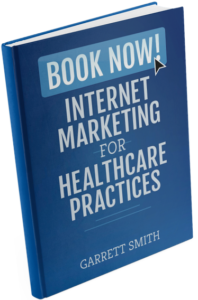Right now, Adwords is one of the top ways for medical doctors, dentists, hospital systems, and private practices to market their services. The goal of any advertising campaign is, of course, to connect with patients who need help.
To best reach those patients, advertising campaigns must be set up strategically. From the geographical area, demographics, and content, everything should be designed to catch the attention of potential patients who are using Google.
A vital part of any Adwords advertising campaign are the keywords you’re targeting. In fact, not putting in the time for keyword research can make or break your campaign.
For anyone in the medical industry, specific keywords like doctor near me, orthopedic surgeon, primary care doctor, and urologist for women are par for the course. However, some keywords relate to conditions, injuries, treatments, and procedures that are also key to capturing leads through advertising.
Anything from allergy testing, same-day hip replacement, and joint injections to brand-specific keywords like Emsculpt or Coolsculpting, are relevant to patients who are doing their research.
For a board-certified doctor or dentist, these keywords are part of the lingo they use every day in their practice. If it’s a service they provide, it only makes sense to build an Adwords campaign that targets these terms… Or does it?
Recently, Google green-lighted radical changes to their advertising policies that severely impact the advertising capabilities of licensed physicians.
Here’s what’s happening.
Adwords Safeguarding Policies
With so much misinformation spreading around these days, advertising platforms must create some restrictions. Ultimately, these rules protect users who may not be able to distinguish fact from fiction.
With an “Ad” disclaimer appearing near any paid advertisement, users may trust advertisements over organic results. This makes it even more critical for Adwords to safeguard advertisements – rightfully so.
On the Google Ads Policies page, the details of their guidelines are outlined. In their own words, these policies are in place because:
“We want to support a healthy digital advertising ecosystem—one that is trustworthy and transparent, and works for users, advertisers, and publishers. The purpose of this website is to help you build Google Ads campaigns that align with our advertising policies listed below. These policies are designed not only to abide by laws but to ensure a safe and positive experience for our users. This means that our policies prohibit some content that we believe to be harmful to users and the overall advertising ecosystem.”
And that all sounds good, right? Well, it’s not so great for doctors.
Medical School vs Google: The Showdown of the Century
Let’s take a closer look at that last sentence of Google’s policy explanation: “Our policies prohibit some content that we believe to be harmful to users and the overall advertising ecosystem.”
In many situations, Google has prohibited certain content from appearing in advertisements and succeeded in helping users. In the case of gatekeeping ads in the medical community, however, a problem is emerging.
Why? Well, for starters, Google didn’t go to medical school.

In many cases, the Google advertising policy cannot distinguish the difference between a board-certified physician performing a safe procedure and someone at a spa trying to perform the same procedure (minus all the training).
Google also often fails to recognize updated medical studies that prove the effectiveness and safety of certain procedures.
As a result, Google is unfairly cracking down on physicians who are looking to connect with prospective patients who are looking for legitimate care.
The MedSpa Problem
A few years ago, a huge shift hit the medical world. People were suddenly faced with a new slew of businesses opening in their community: medical spas.
At a MedSpa, you can book a facial and manicure with your girlfriends and also get some Botox without doctor-supervision.
While aestheticians are trained to perform some procedures, there is a huge difference in the depth of knowledge about safety, dosing, and injection locations that a doctor has versus someone at a spa.
However, the difference in price and the availability of coupons drove patients to spas first. Throw in some targeting advertisements and patients suddenly felt comfortable booking their procedure without understanding that they would not be working with a doctor.
More and more often, dermatologists are seeing patients who have experienced complications from procedures performed at these spas.
Google Adwords Pulling Ads
With so many problems popping up with medical advertising, Google has implemented further restrictions regarding medical terminology.
There’s a huge list of restricted terms in advertisements that you can review here. Most concerningly, we’re seeing a growing trend of board-certified dermatologists and orthopedic surgeons having their ads pulled for “speculative medicine.”
Here’s the thing: advertisements that do not mention Botox, for example, are being pulled for violating the speculative medicine.
Advertisements that don’t mention Botox in the content and don’t target Botox as a keyword are getting pulled. We have also noticed the same problem with the term PRP (platelet-rich plasma).
Apparently, if a physician’s website mentions these “speculative medicine” terms, all advertisements will be stopped.
Yep, that means a board-certified dermatologist who went through medical school and residency cannot mention Botox on their website. And that means orthopedic surgeons, who went through 13 or 14 years of specialized training, cannot mention PRP on their website as a treatment option for their patients.
See the issue here?
After speaking to our Google Adwords representative, we have been able to get many of these advertisements reinstated – but that didn’t stop Adwords from completely stopping one dermatologist from advertising for a full month.
The Solution (According to Google)
Unfortunately, this problem doesn’t look like it’ll be going away any time soon.
Since we got our client reinstated in December, those same ads have been stopped and restored three times. Our representative was clear in stating we will continually run into this problem regardless of the client’s professional status.
When we inquired about a solution, we got three options:
- Remove the offending term from the website completely
- Apply for an Adwords Medical Certification
- Message our representative to reinstate the ads once we notice they have been stopped again
Here’s the issue with these solutions:
- Asking a board-certified physician to remove information about a safe medical procedure or treatment from their website is doing patients a disservice as they will no longer be able to learn about the options available to them from a verified source.
- There is no medical certification option for a physician. When we went through this process for our clients, we had to apply as a pharmacy. Even though all of our clients were given a medical certification as a pharmacy (???), their ads are still getting pulled.

- There is still a lot of downtime for these advertisements even if we immediately contact a representative.
How We Solved the Problem for Ava MD
Given our limited options from Google, we had to get creative when it came to getting those advertisements back up and running.
If you’re lucky, you may be able to select “Resubmit” for review. As you can see in the screenshots below, another ad has already been pulled due to: website violations, restricted medical content, and restricted drug terms.

Interestingly enough, the advertisement that was pulled does not mention anything that violates Adwords policy. Instead, it appears to have been flagged due to content on Dr. Ava’s website. Take a look for yourself:

To make some headway with these advertisements being taken down, here’s what we did:
- Get in contact with your Google representative. Our rep was able to directly push these advertisements to a separate team that reviewed them and re-approved each one.
- Sign up for an Adwords Medical Certification. As instructed by our Google rep, we selected “Online Pharmacy” and indicated the country we are in.

- Select “No” when asked if you are an agency representing the online pharmacy
- Enter the “Full Customer Name” with the business owner’s name.
- Enter the “Contact Name” as your own name
- Enter the business’s physical address
- Enter your contact phone number under “Contact Number”
- Enter your email under “Contact Email”
- Enter the business’s URL
- Enter the business’s Adwords Account ID number
- Skip over entering the Pharmacy Licensing details
- Hit “Submit”
While getting this certification doesn’t mean that you won’t have to deal with the hassle of advertisements getting incorrectly pulled down by the Adwords policy algorithm, it does give you a leg to stand on when that ad is being reviewed for reapproval.
The lack of a solid solution is leaving many people wondering if they should redirect their paid advertising budget from Google to invest it in organic and other advertising efforts. For physicians, medical practices, and hospital systems, Google’s safeguarding of medical terminology is creating a larger issue that ultimately punishes the patients.





